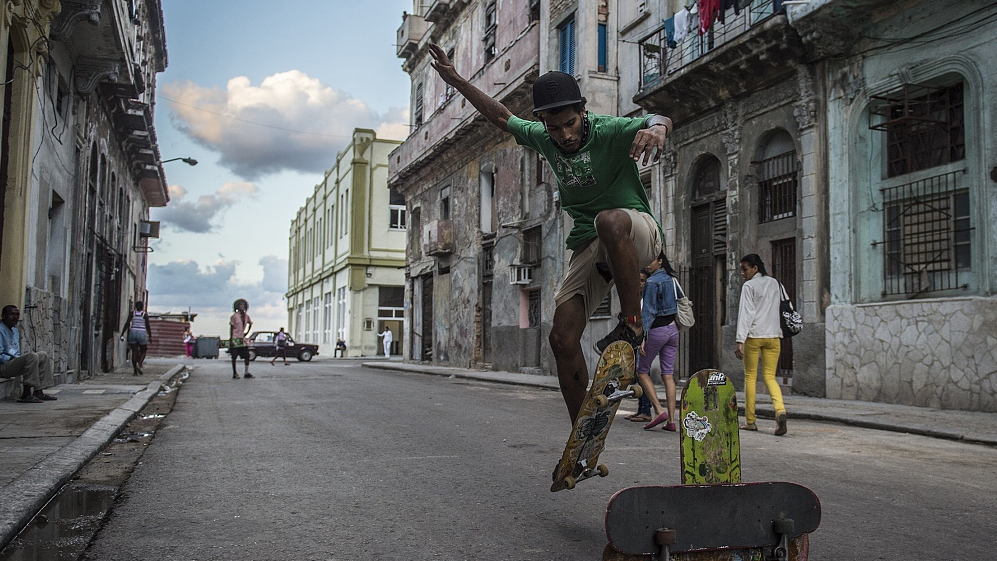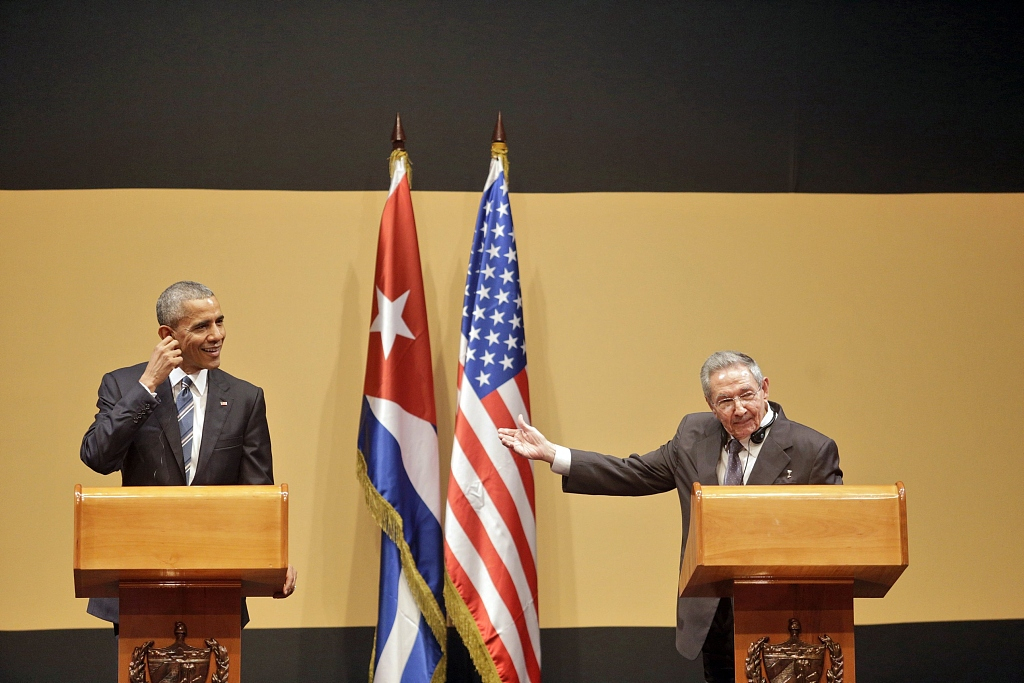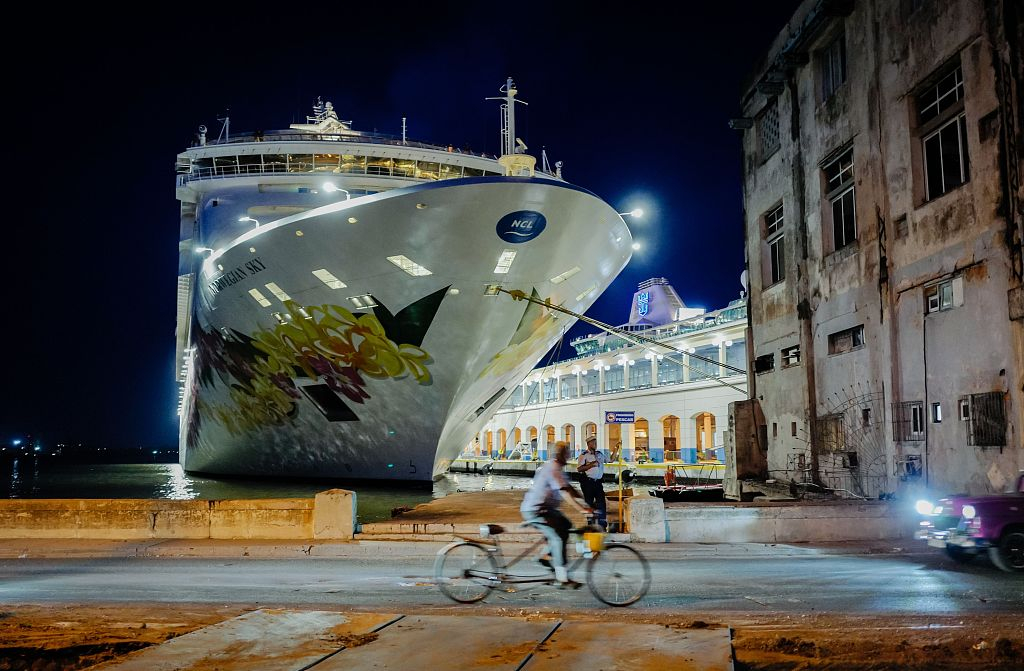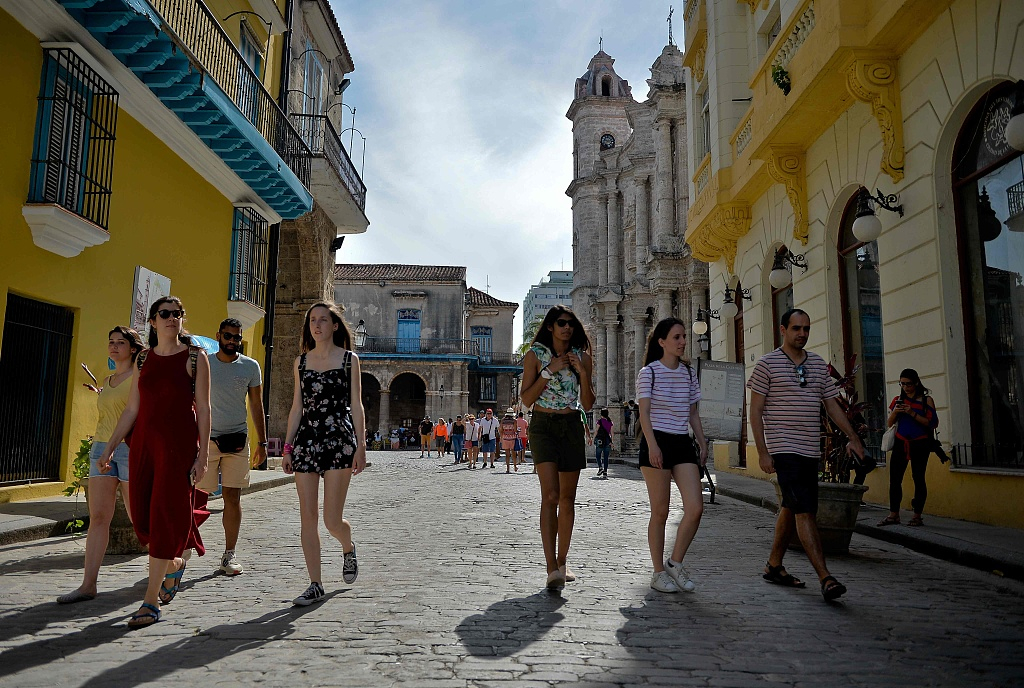
Opinion
22:44, 06-Jun-2019
Facing new U.S. sanctions, Cuba is taking it easy this time
Pan Deng

Editor's note: Pan Deng is a member of the Academic Committee at the Charhar Institute and executive director of the Latin America and Caribbean Region Law Center of China University of Political Science and Law. The article reflects the author's opinion, and not necessarily the views of CGTN.
From June 5, U.S. citizens are not permitted to have educational and cultural group trips, known as "people-to-people" trips to Cuba. In addition, private and corporate aircraft and the same kind of boats will not be able to travel to the Caribbean island. The new restrictions will also have an impact on cruise ship passengers whose trips are organized as tours.
The travel ban took effect one day after it was issued by the White House – very typical of this administration whose words are always quickly matched by deeds.
U.S.-Cuban relations back to square one
The difference in political systems and ideological misalignment between Cuba and the U.S. have led to prolonged confrontation since the 1960s. In the final years of the Obama administration, the two countries established diplomatic relations of "epoch-making significance."
However, the fundamental contradictions were not resolved and mutual trust between the two sides was flimsy. Since the normalization of relations was only at its infancy, the two countries agreed to have "people-to-people exchanges," "political contact" and "economic and trade cooperation" as the three areas for developing relations, which would boost the push of bilateral relations into the "fast track" and act as the cornerstones for medium to long-term stability.

Former U.S. President Barack Obama (L) and former Cuban President Raul Castro hold a joint press conference at the Cuban State Council in Havana, Cuba, March 21, 2016. /VCG Photo
Former U.S. President Barack Obama (L) and former Cuban President Raul Castro hold a joint press conference at the Cuban State Council in Havana, Cuba, March 21, 2016. /VCG Photo
Under the agreement, the U.S. president eased a 55-year-old travel ban on Cuban citizens to the United States, and 12 visit categories became legally allowed, including education and people-to-people exchanges.
Unfortunately, less than half a year after Obama handed over the presidency in January 2017, a series of agreements he reached with Cuban leaders were branded as "totally unfair," and the majority of economic and trade exchanges between the two countries were suspended all of a sudden.
Even worse, Washington withdrew all non-emergency staff of the U.S. embassy in Havana and their family members under the pretext of a "sonic attack" in September and expelled 15 Cuban embassy officials in the United States in October. Today, the people-to-people exchanges are under attack too.
According to media reports in Cuba, even academic programs of great interest to some North American scholars have been affected. In the past year alone, 24 U.S. universities and research institutions have engaged in academic exchanges with Marti Studies Center under the Cuban Ministry of Culture. However, this program is likely to be forced to terminate.
No reason, only political needs
As a country that believes it occupies the ideological high ground, the U.S. has always been enthusiastic about people-to-people exchanges. Inspired by the idea of "free exchange," the U.S. has selected elites of different nationalities to go there for the indoctrination of its values.
Moreover, academics from all over the world have long worshiped and followed the masters and best minds hailing from what Ronald Reagan described as the "shining city upon a hill."
The U.S. loses nothing and has everything to gain when it comes to people-to-people exchanges with other countries.

A man on a tandem bicycle passes by a cruise docked at Havana's Harbour, on June 5, 2019. /VCG Photo
A man on a tandem bicycle passes by a cruise docked at Havana's Harbour, on June 5, 2019. /VCG Photo
Americans becoming disoriented
They turn a blind eye to the goodwill involved in establishing collaborative teaching institutions and their smooth operation for decades when they accuse these institutions of perverting the public opinion in the United States.
They turn a blind eye to the fact that the vast number of foreign students, whether they stay in the U.S. or not after graduation, are contributing their wisdom to human civilization and technological progress when they impose various restrictions on students' visas.
They turn a blind eye to the positive role of think tanks as facilitators of trust and dispel doubts in bilateral relations when they make false claims that these experts are there for espionage.
The wanton and vicious attacks have eventually aroused collective unease in the academic circle.
Harvard, Yale, Stanford and UC Berkeley have all appealed that maintaining and deepening exchanges and cooperation between the educational institutions of the two countries are of vital importance to the promotion of bilateral relations, arguing that it is not in the academic interest to restrict normal cultural exchanges without any good reason.
In short, politicians don't answer to reason or public opinion. They only answer to political needs.
Never yield to hegemony
Instead of looking for preposterous excuses, the gentlemen in Washington are honest this time.
"(Cuba) is providing a communist foothold in the region and propping up U.S. adversaries," said Treasury Secretary Steven Mnuchin. "This administration has made a strategic decision to reverse the loosening of sanctions and other restrictions on the Cuban regime. "

The U.S. Treasury banned educational group traveling to Cuba, June 4, 2019. /VCG Photo
The U.S. Treasury banned educational group traveling to Cuba, June 4, 2019. /VCG Photo
In fact, this is not the first time White House officials target tourism. At the beginning of this year, they spread "negative information" about traveling to Cuba. However, tourists apparently did not care about these "warnings" when choosing their holiday destinations.
At the beginning of last month, Michel Bernal, the commercial director for the Cuban Ministry of Tourism, disclosed data that from January to April this year, the number of U.S. tourists visiting Cuba increased by 93.5 percent year-on-year. Perhaps executive orders are the last resort to restrict people's right to "freely choose their travel destination."
Compared with the indignation when sanctions were imposed in the past, this time Cubans are calm. At the end of April, the White House threatened to impose a "complete embargo" and "sanctions at the highest level" on Cuba. In fact, 60 years after the first sanctions, the Cuban people have become used to surviving the tight blockade and extreme pressure of the northern hegemon and have never been forced to make any political concessions.
Just like the Caribbean Sea, the socialist regime is still there. But the country that has always claimed to be "very free" is quietly changing.
(If you want to contribute and have specific expertise, please contact us at opinions@cgtn.com.)

SITEMAP
Copyright © 2018 CGTN. Beijing ICP prepared NO.16065310-3
Copyright © 2018 CGTN. Beijing ICP prepared NO.16065310-3